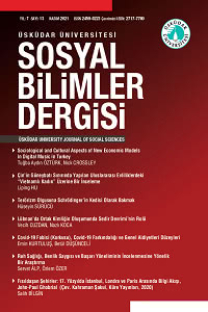Kitap Değerlendirmesi: Paul Hoyningen-Huene, Systematicity: The Nature of Science [Sistematiklik: Bilimin Doğası] (Oxford University Press, 2013).
“Bilim nedir?” sorusu, bizzat bilim ve felsefe kadar eski olduğu söylenebilecek bir sorudur. Felsefe tarihinin başlarından itibaren farklı ekollerden farklı düşünürler bu soruyu cevaplamayı denemişlerdir. Sorunun halen tatmin edici bir yanıt bulamadığını gözlemleyen Alman bilim felsefecisi Paul Hoyningen-Huene, bu gözleminden yola çıkarak, yeni bir yanıt girişiminde bulunmuştur. Yazarın önceki eserlerinde de izleri sürülebilen “sistematiklik teorisi”, ilk kez 2013 yılında Oxford University Press tarafından yayımlanan Systematicity: The Nature of Science [Sistematiklik: Bilimin Doğası] eserinde detaylıca sunulmuştur. Bilim nedir sorusuna getirdiği yeni yaklaşım ve sosyal ve beşeri bilimlerle doğa bilimlerini ayıran ve birleştiren hususları araştırmasıyla Systematicity: The Nature of Science, gerek bilim felsefecilerinin, gerekse teoriyle ilgilenen bilim insanlarının bolca faydalanabileceği bir eserdir.
Anahtar Kelimeler:
Sistematiklik, Bilim Felsefesi, Paul Hoyningen-Huene, Karl Popper, Paul Feyerabend
Book Review: Paul Hoyningen-Huene, Systematicity: The Nature of Science (Oxford University Press, 2013).
The question of 'What is science?' can be said to be as old as science and philosophy itself. Since the beginning of the history of philosophy, different thinkers from different schools have tried to address this question. Observing that the question is yet to find a satisfactory answer, the German philosopher of science Paul Hoyningen-Huene has attempted to provide a new answer based on this observation. His 'systematicity theory', which can be traced in his previous works, was first presented in detail in Systematicity: The Nature of Science, published by Oxford University Press in 2013. With its fresh approach to the question of 'What is science?' as well as its exploration of the issues that separate and unite the social and human sciences and the natural sciences, Systematicity: The Nature of Science is a work from which both philosophers of science and theoretically minded scientists can benefit.
- ISSN: 2459-0223
- Yayın Aralığı: Yılda 2 Sayı
- Başlangıç: 2015
- Yayıncı: Üsküdar Üniversitesi
Sayıdaki Diğer Makaleler
Sosyal Medya Ruminasyon Ölçeği’nin Türkçe’ye Uyarlanması ve Sosyal Medya Kaygısı ile İlişkisi
Türkiye Muhafazakâr Siyasetinde Kardeşlik ve Din Kardeşliği Söylemi: Ak Parti Mitingleri
Uluslararası İlişkilerde Terörizm ve Diaspora İlişkileri: ASALA ve Ermeni Diasporası
Fenomen Aktivizmi: Çevreci Fenomenler Üzerine Bir Araştırma
Nihal KOCABAY-ŞENER, Gözde ÖYMEN
William James: Hümanizmi ve Din Felsefesi
Varlığın Kuyusu: "Herkes"in Psikopolitiği
Çocukluk Dönemi Duygusal Yaşantısı ve Duygusal Zekâ Kavramı
Suriyelilere Yönelik Güvenlik Algısı: İzmir Örneği
Özgül Fobi ve Sınav Kaygısı Olan Ergenlerde EMDR Terapinin Etkisinin İncelenmesi
